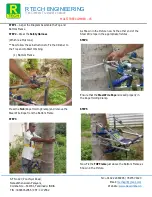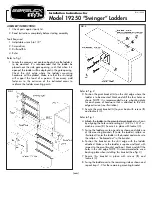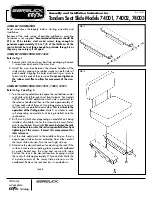
Operation Manual / 4 Product description / TPS44-H.. - TPS52-H..
9
Dismantling and fitting
Page 68 / 99
© Copyright 2016 ABB. All rights reserved.
HZTL4037_EN
Revision A
August 2016
9.7
Removing the cartridge group
Do not remove oil orifice (if present)
42001
Bearing casing
42196
Oil orifice in the oil inlet
To limit the oil flow rate through the bearing casing during operation (engine under load) to the
admissible values, an oil orifice is mandatory at the oil inlet of the bearing casing if the oil inlet
pressure is > 3 bar (overpressure).
If an oil orifice is fitted in the oil inlet of the bearing casing, it must not be removed.
Do not loosen screw plugs
CAUTION
Oil leaks
These screw plugs must not be removed for maintenance work. If a screw
plug is loosened, the gasket can be damaged. This can result in an oil leak.
Do not loosen screw plugs.
If any screw plugs have been loosened accidentally, have these properly
fitted by an ABB Turbocharging Service Station.
Figure 23: Do not loosen screw plugs
















































